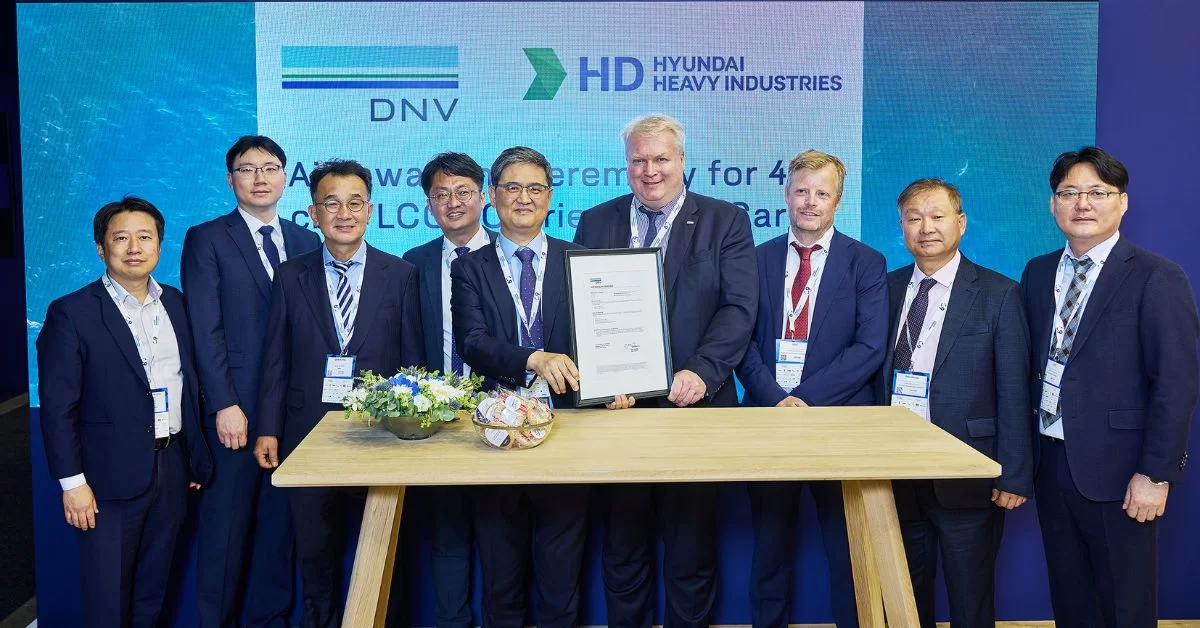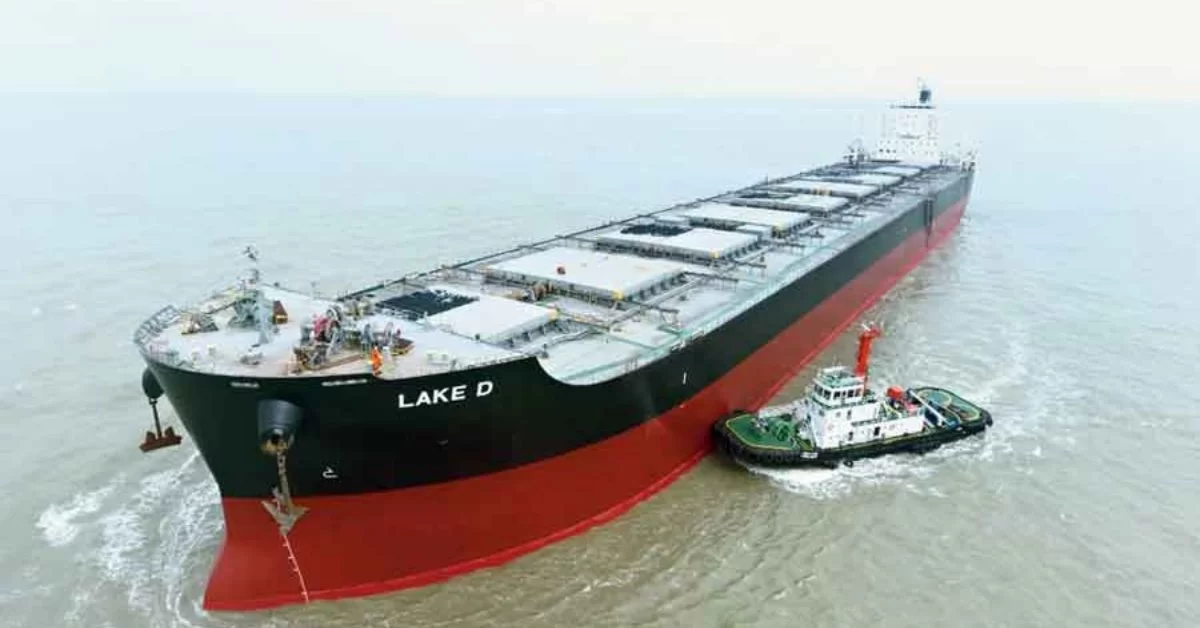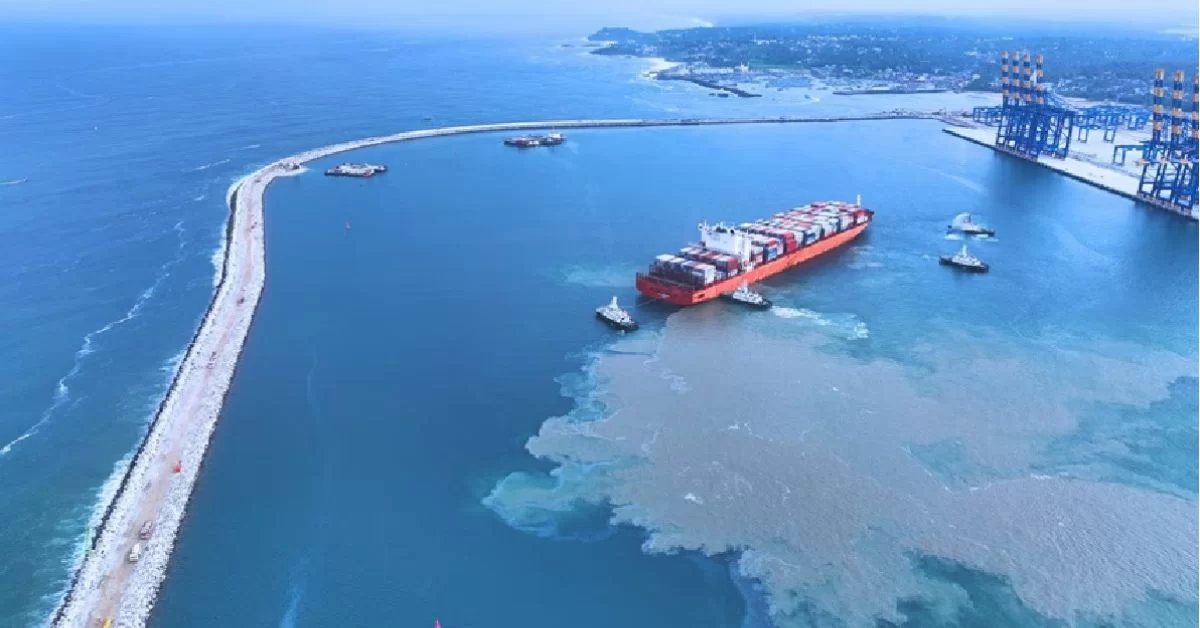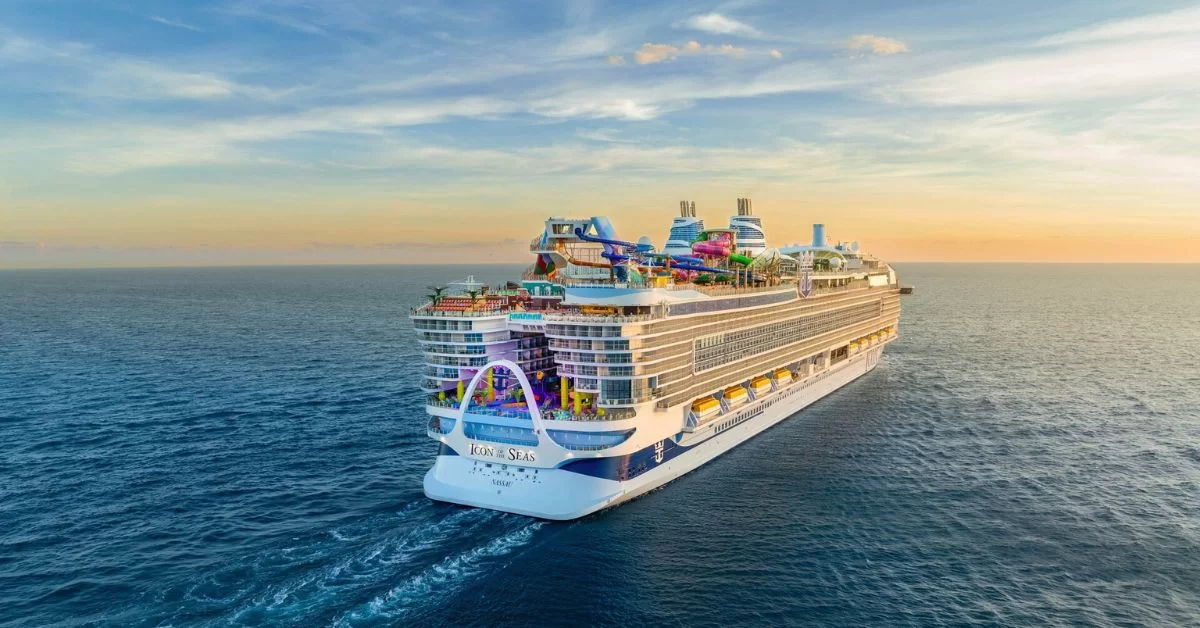At the recent Nor-Shipping 2025 trade fair, a significant milestone was announced for the future of CO₂ transportation. HD Hyundai Heavy Industries (HHI) received an Approval in Principle (AiP) from classification society DNV for their innovative 40,000 CBM liquefied CO₂ (LCO₂) carrier design featuring three cargo holds. This achievement highlights HHI’s commitment to advancing sustainable maritime solutions and supports the growing need for efficient CO₂ transport in carbon capture, utilization, and storage (CCUS) applications.
Optimized Cargo Handling System
A key feature of HHI’s new LCO₂ carrier design is the optimization of the cargo handling system. By reducing the number of cargo holds from four to three, the number of cargo tanks is also reduced. This redesign simplifies the overall system architecture and results in multiple operational advantages:
Enhanced convenience for inspection and maintenance
Streamlined loading operations
Reduction in piping systems and instrumentation
This simplification means fewer components and less complexity, contributing to a safer and more efficient vessel operation.
Improved System Efficiency and Energy Management
With the increase in the volume of each cargo tank, the design also improves the performance of the Boil-Off Gas (BOG) management system. This enhancement leads to better energy management on board and contributes to the overall efficiency of the vessel. Efficient BOG management is essential to maintain cargo integrity and reduce energy consumption during transportation, aligning with the industry’s push for greener maritime operations.
Leadership Perspectives
Hong-Ryeul Ryu, CTO and Executive Vice President of HD Hyundai Heavy Industries, shared his vision:
“Receiving DNV’s AiP for our latest LCO₂ carrier design shows the progress we are making in realizing practical, high-performance solutions for CO₂ transportation. We believe this innovation will bring tangible benefits to operators through simplified operations and improved fuel efficiency. Because as CCUS becomes more widely deployed, it is vital that we can utilize vessels as part of cost-effective and flexible large-scale CO₂ supply chains.”
Echoing this sentiment, Vidar Dolonen, Regional Manager of DNV Korea & Japan, said:
“DNV is proud to support and recognize HHI on this important step forward in CO₂ transport. Working together with forward-looking partners like HHI to find compliant and optimized solutions is vital in emerging segments like LCO₂ transport. At DNV, we’re proud to support these developments, through our expertise and trusted voice we help build confidence in new value chains that move the world closer to a decarbonized future.”
Understanding Approval in Principle (AiP)
An Approval in Principle (AiP) is an independent evaluation of a concept against a predefined framework of requirements. It confirms the feasibility of a design and ensures there are no major technical obstacles that could hinder its implementation. Receiving an AiP from a respected classification society like DNV is a critical step that validates HHI’s innovative approach to LCO₂ carrier design, paving the way for future commercial deployment.
The granting of the AiP to HHI’s 40,000 CBM LCO₂ carrier with three cargo holds marks a pivotal development in maritime transport technology. By optimizing cargo handling systems and improving energy efficiency, this design supports the emerging CCUS market and helps shape a more sustainable future for global shipping and climate action. Nor-Shipping 2025 showcased this innovation as a vital step towards integrating advanced vessel designs into the global low-carbon economy.





 >
>












 Business Care Solutions
Business Care Solutions